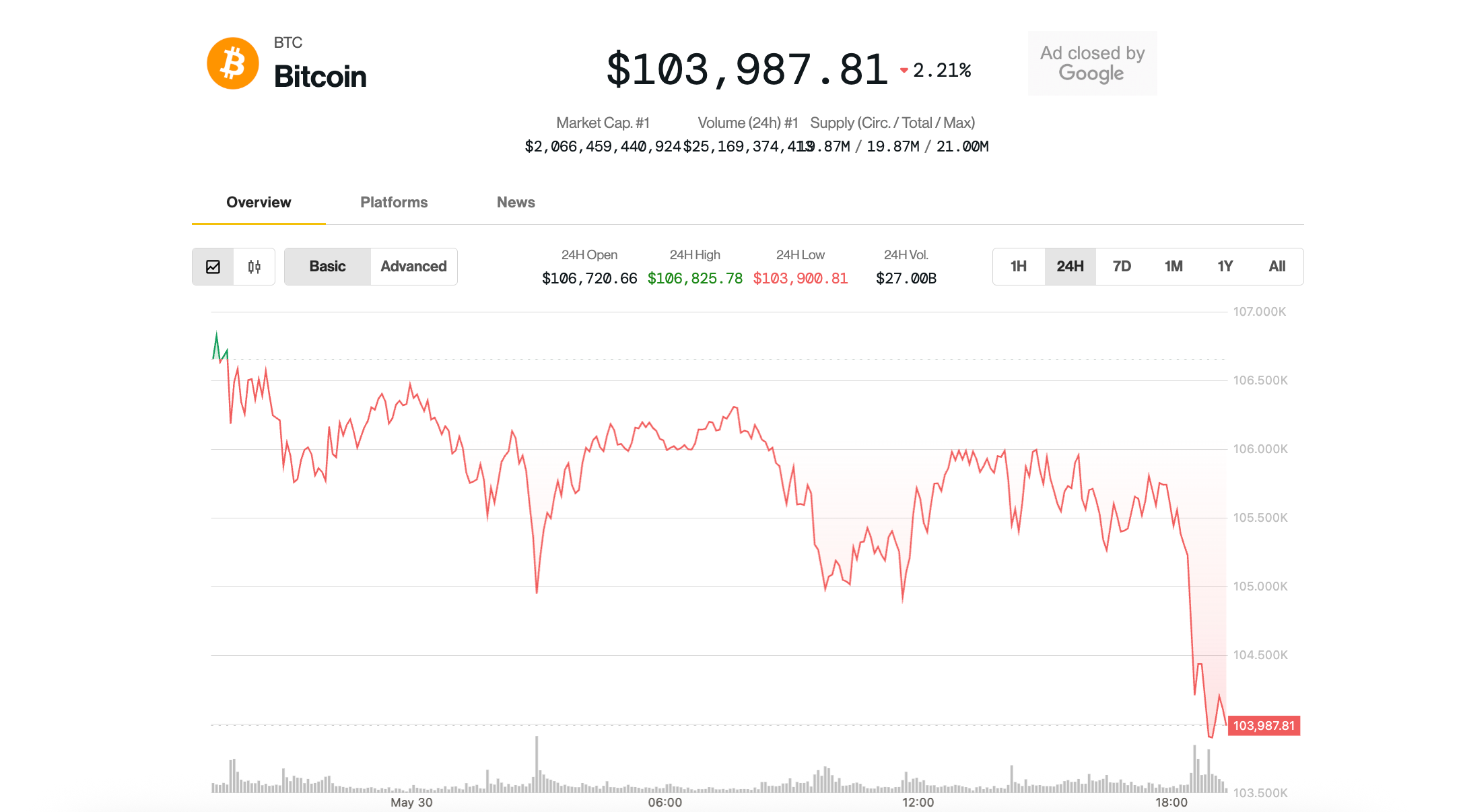

In Brief
Crypto activity surged between Sept 30 and Oct 4, 2024, with institutions increasing engagement, projects advancing, and traditional finance players adopting decentralized technologies, new ETFs, blockchain launches, and security upgrades.

This past week (Sept 30 – Oct 4, 2024) saw a surge of activity across the crypto world. Institutions are ramping up their engagement, and projects are pushing forward with critical innovations. Key players from traditional finance seek to deepen their crypto ties, which is why we’re seeing an acceleration in the adoption of decentralized technologies. This week, we’re talking about new ETFs, blockchain launches, and significant security upgrades. Here’s a breakdown of the key developments driving the crypto narrative this week.
CARV Partnerships for Web3 Gaming and AI
CARV has already cemented its presence as the ‘modular identity layer’ for all things GameFi, and, in Q3 2024, it continued to CARV out a niche for itself with some major partnerships. First off, the project teamed up with the Base ecosystem and the EigenLayer protocol. These collaborations promise to offer enhanced security and efficiency for CARV’s operations.
Meanwhile, strides have been made in AI integrations – namely, the new partnerships with Inferium AI and Gitcoin Passport. Once in place, these integrations promise to deliver an enhanced, data-driven experience for CARV users. On the purely gaming side of things, CARV is now buddies with the Web3 gaming platform Intella X and the P2E gurus Telgather, both promising to deliver mind-blowing immersion for gamers all across DeFi.
Crosschain play is a big thing, and on this front, CARV has also made some wise moves by partnering with LayerZero.
Meanwhile, CARV Play, the project’s own AI-powered app that personalizes gamer experiences, is rapidly gaining pace. As of this writing, it boasts 9.5 million registered users and 1.3 million daily active users, with no sign of the numbers declining in sight.
This is not to mention CARV Labs, which also made waves by launching a $50 million accelerator program to back projects that are meant to fuel Web3 mass adoption. Early results are promising, with the idle game BANANA attracting 12 million users in just a month following its launch on the TON blockchain.
If that didn’t seem enough, CARV promises even bigger announcements in Q4, so investors had better stay tuned.
Arbitrum’s Security Subsidy Fund (SSF)
Arbitrum has rolled out its $2.5 million Security Subsidy Fund (SSF), targeting projects within its ecosystem that need a security boost. Between September 30 and October 14, teams can apply for subsidies to cover the cost of top-tier security services from nine trusted providers.
The SSF helps developers by handling the cost of crucial security services things like smart contract audits or penetration testing – so they can focus on building their projects without worrying about getting hacked. ArbitrumDAO, the decentralized organization behind this initiative, uses a “means test” to evaluate applications, ensuring that funds go to projects that really need them.
Thus, the SSF is a clear signal of Arbitrum’s commitment to making its ecosystem secure and scalable. For anyone building in this space, it’s an attractive offer to ensure your project is both safe and aligned with Arbitrum’s growing community of developers.
Shardeum’s Incentivized Testnet Phase 3 Launch
Shardeum has just rolled out the third phase of its incentivized testnet, Atomium, which began on October 1, 2024. This phase will run for 3-4 weeks, giving users an extended window to test and stress the network. The goal is to push the limits of Shardeum’s auto-scaling capabilities, which automatically adjust to handle more users and transactions without driving up gas fees.
What’s different about Stage 3? This phase ramps up validator tasks, introducing slashing mechanisms – essentially penalties for nodes that don’t perform as expected. Validators are the backbone of any blockchain; they confirm transactions and maintain network security. If a node misbehaves (e.g., it goes offline at the wrong time), part of its staked tokens could be “slashed” as a penalty, simulating what will happen on the mainnet.
The community is crucial here – users are asked to test various on-chain activities, such as peer-to-peer transfers and validator performance. In return, they can earn SHM tokens, XP points, NFTs, and more. There are also referral programs and social tasks to keep things engaging.
This is a critical step toward Shardeum’s mainnet, as the network is fine-tuned through real-world stress tests. If done right, this will ensure the project can scale smoothly when fully launched.
BlackRock and Fidelity Bitcoin ETFs
On the ETF fron, BlackRock’s iShares Bitcoin Trust (IBIT) has shot past Grayscale’s GBTC, securing the top spot as the largest Bitcoin ETF in the U.S. As of this writing, BlackRock is managing over $22 billion worth of Bitcoin. Fidelity’s Wise Origin Bitcoin Trust (FBTC) isn’t far behind, ranking among the top 10 ETF launches of the 2020s.
Amazingly enough, these crypto ETFs are outpacing traditional products thanks to significant inflows from institutional investors. The shift away from GBTC, once the leader, shows how BlackRock and Fidelity are dominating the space with regulated, user-friendly options that appeal to a broader market. Investors are flocking to these ETFs for a streamlined way to get into Bitcoin without the complexities of managing private keys or wallets.
Canary Capital’s HBAR Trust
Canary Capital just launched the first-ever U.S. HBAR Trust, offering institutional investors direct exposure to Hedera’s native token, HBAR – without the headaches of managing crypto wallets. Helmed by Steven McClurg (ex-Valkyrie Funds), the move signals a green light for institutions ready to explore the crypto market.
HBAR powers Hedera, a high-performance blockchain known for lightning-fast transactions and low fees, which is attractive to enterprises. The HBAR Trust is designed to make investing in this blockchain easier and more secure for institutions who’ve been hesitant about crypto’s technical hurdles. With portfolio manager Josh Olszewicz on board, Canary Capital is aiming to level up crypto products for serious investors. Rumor has it that an HBAR ETF could be next, aiming to ride the wave of crypto ETFs.
Franklin Templeton Proposes Crypto Index ETF
Franklin Templeton is shaking up the crypto space with a new SEC filing for a Bitcoin and Ethereum Index ETF. As per the core ETF ethos, traders of Franklin Templeton’s ETF could speculate on the prices of the two leading coins without needing to buy or store them directly. Instead, the ETF will track the CF Institutional Digital Asset Index, offering a one-stop shop for trading both coins.
The ETFs will be made up of blocks of 50,000 shared. Each share in a block will represent the Net Asset Value (NAV) of the corresponding share of BTC and ETH contained within. The assets will be managed by BNY Melon. Handling the cryptos themselves would be the task of Coinbase Custody. Investors should keep in mind that the Franklin Templeton ETF will not offer staking options – at least, not for the observable. So, no passive income for the fund holders – only active trading.
Traditionally, the ETF is set to be reviewed by the SEC for any weak spots in security and transparency. Franklin Templeton has already taken strides in bridging the gap between Traditional Finance and DeFi with their previous launch of the OnChain U.S. Government Money Market Fund.
Disclaimer
In line with the Trust Project guidelines, please note that the information provided on this page is not intended to be and should not be interpreted as legal, tax, investment, financial, or any other form of advice. It is important to only invest what you can afford to lose and to seek independent financial advice if you have any doubts. For further information, we suggest referring to the terms and conditions as well as the help and support pages provided by the issuer or advertiser. MetaversePost is committed to accurate, unbiased reporting, but market conditions are subject to change without notice.
About The Author
Victoria is a writer on a variety of technology topics including Web3.0, AI and cryptocurrencies. Her extensive experience allows her to write insightful articles for the wider audience.

Victoria d’Este

Victoria is a writer on a variety of technology topics including Web3.0, AI and cryptocurrencies. Her extensive experience allows her to write insightful articles for the wider audience.
Read More: mpost.io










 Bitcoin
Bitcoin  Ethereum
Ethereum  Tether
Tether  XRP
XRP  Solana
Solana  USDC
USDC  Dogecoin
Dogecoin  TRON
TRON  Cardano
Cardano  Lido Staked Ether
Lido Staked Ether  Wrapped Bitcoin
Wrapped Bitcoin  Hyperliquid
Hyperliquid  Wrapped stETH
Wrapped stETH  Sui
Sui  Chainlink
Chainlink  Avalanche
Avalanche  Stellar
Stellar  LEO Token
LEO Token  Bitcoin Cash
Bitcoin Cash  Toncoin
Toncoin  Shiba Inu
Shiba Inu  USDS
USDS  Hedera
Hedera  WETH
WETH  Wrapped eETH
Wrapped eETH  Litecoin
Litecoin  Polkadot
Polkadot  Binance Bridged USDT (BNB Smart Chain)
Binance Bridged USDT (BNB Smart Chain)  Monero
Monero  Bitget Token
Bitget Token  Ethena USDe
Ethena USDe  Pepe
Pepe  Pi Network
Pi Network  WhiteBIT Coin
WhiteBIT Coin  Coinbase Wrapped BTC
Coinbase Wrapped BTC  Dai
Dai  Aave
Aave  Uniswap
Uniswap  Bittensor
Bittensor  Cronos
Cronos  OKB
OKB  Ethena Staked USDe
Ethena Staked USDe  Jito Staked SOL
Jito Staked SOL  BlackRock USD Institutional Digital Liquidity Fund
BlackRock USD Institutional Digital Liquidity Fund  Aptos
Aptos  NEAR Protocol
NEAR Protocol  Tokenize Xchange
Tokenize Xchange  Ethereum Classic
Ethereum Classic  Ondo
Ondo